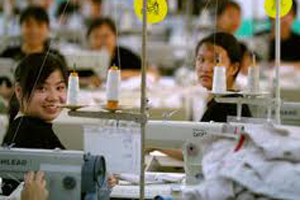
Hongkong, Myanmar link up to set up industrial park in Yangon
YarnsandFibers News Bureau 2014-03-13 12:00:00 – HongkongOne of the world’s easternmost countries, Hongkong and Myanmar have finally decided to link up with the Liberal Party lawmaker Felix Chung Kwok-pan representing the textiles and garment constituency.
The deal is struck on behalf of 12 manufacturers to set up their first industrial park in Yangon by renting half of the 400-hectare Thilawa Special Economic Zone, co-built by Myanmar and Japan. Through this, the dealers expect to make effective cost cutting in the wages of workers and reduce the production costs to half of the recent expenditure. Workers at the 200-hectare facility will be paid about a fifth of those employed in mainland factories.
Felix Chung Kwokpan, honorary life chairman of the Hong Kong Apparel Society, assertively says that they will start the construction work in mid-2015 and hope the factories can start operating by the end of next year.
He is assured that the manufacturers - who will invest US$2 million to US$3 million in the industrial park - could break even in one to two years. The manufacturers will retain their production plants on the mainland to keep things "flexible", he added. The land is rented for US$52 million annually for 50 years.
Chung said the Hong Kong manufacturers have planned to employ at least 30,000 Myanmese workers at the market salary of US$100 to US$120 a month. The salary level is only one-fifth of the mainland workers. All products exported from Myanmar enjoy duty-free access to all EU countries after Western counties heighted economic sanctions on the country. We expect it would - at a very conservative estimate - trim at least half of the cost in contrast to the production in China.
According to Jimmy Ng Wing-ka, vice-president of the Chinese Manufacturers' Association, said he could not see a trend for manufacturers moving their factories from China to Myanmar, as low production costs were not their only concern. Logistics also matter. If you plan to export the products to United States not the European Union, there would be no reason for you to move to Myanmar due to the flight path.
It is not just the cost of production that allows the migration some factories to move from south to northwest China but also due the appreciable Chinese currency which hampers its way to profits.
Market Intelligence
Ask for free sample Report

experience
Customer Base
dedicated team
Countries Served Worldwide









